Persistent Identifiers in Academia

What is a persistent identifier?
A persistent identifier (PID) is a long-term identifier for resources such as articles, datasets, people, and many other resources. PIDs are crucial for enabling the reliable citation, sharing, and discovery of digital resources, as they allow users to find and access the exact version of an object, even if its location, format, or ownership changes over time.
Read More on our Persistent Identifier PageDigital Object Identifiers
Digital Object Identifiers can be found in many places in academia.
See below for how to find the DOI on many popular academic websites:
On El Sevier the DOI is between the author information and the abstract
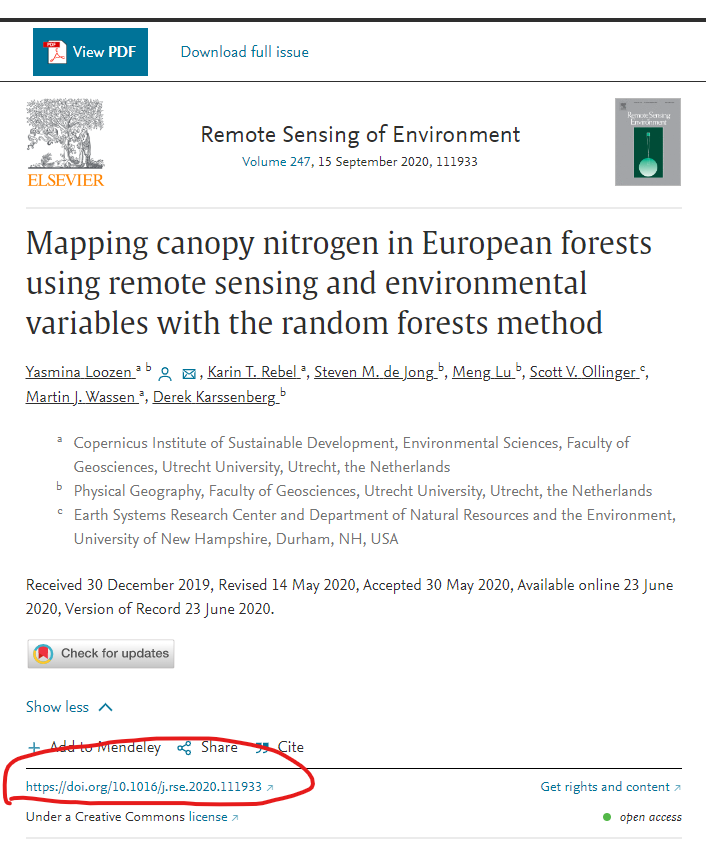
On MDPI the DOI is between the authors and publication date

On Springer Nature group pages, you have to click the “Cite this article” link, then it is before the share heading.
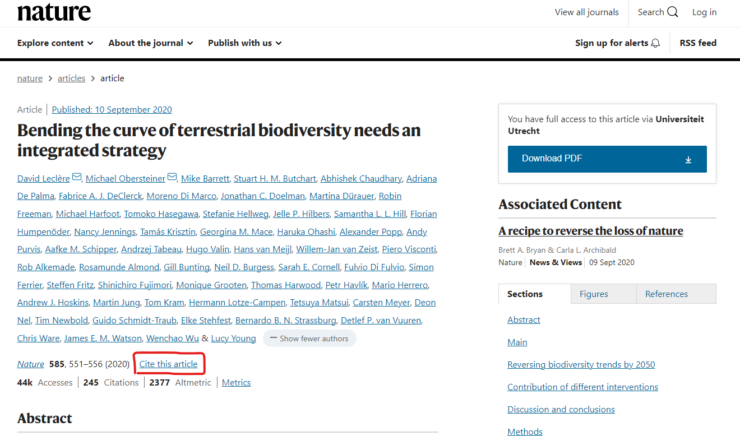
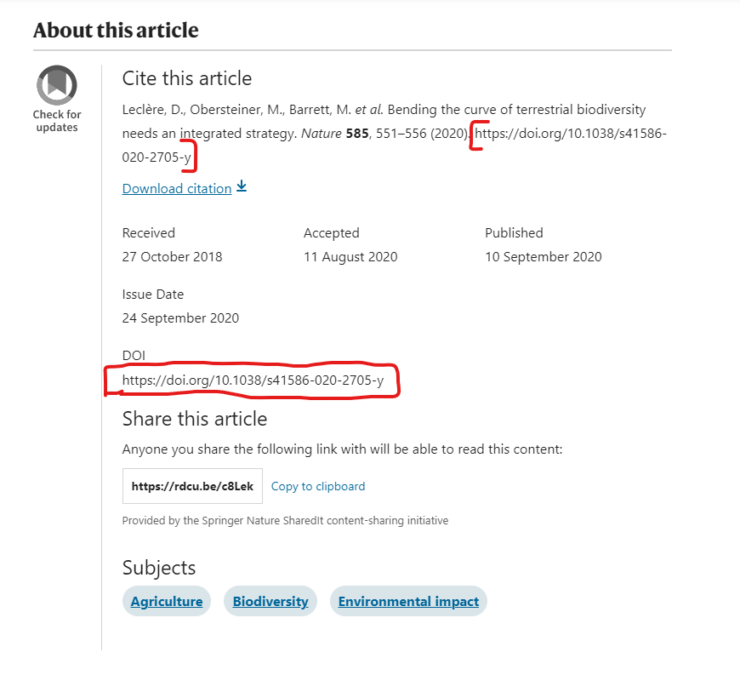
On Taylor and Francis it is just below the authors
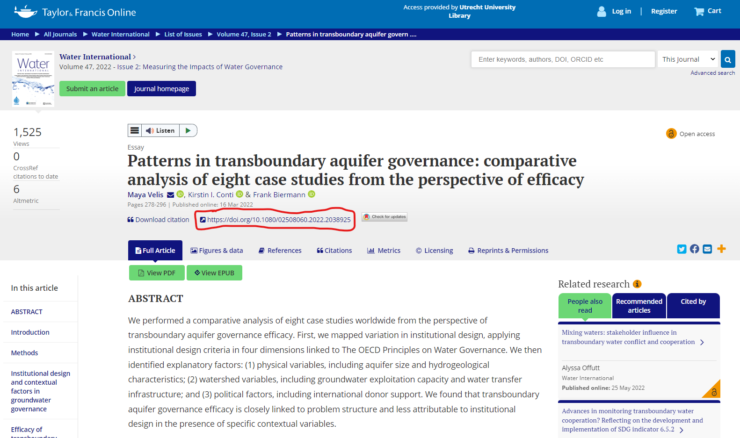
On Wiley it is just under the authors next to the publication date
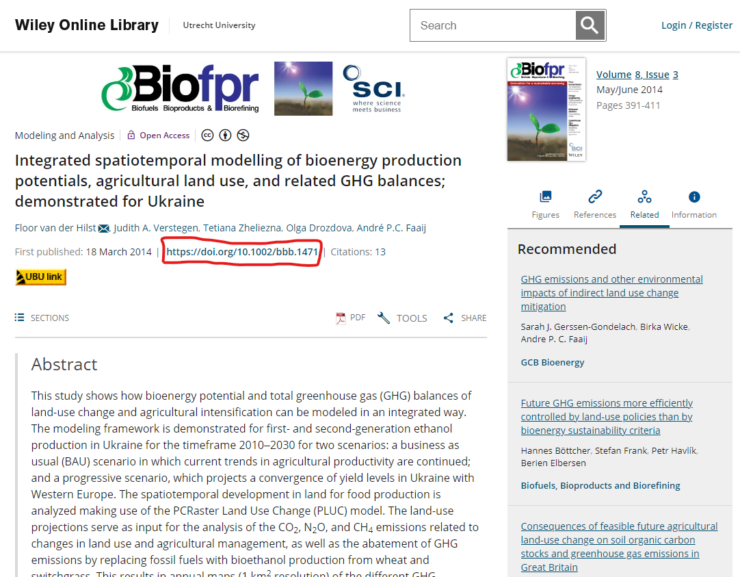
On a YoDa archive page, it is located under Metadata, under Persistent Identifier
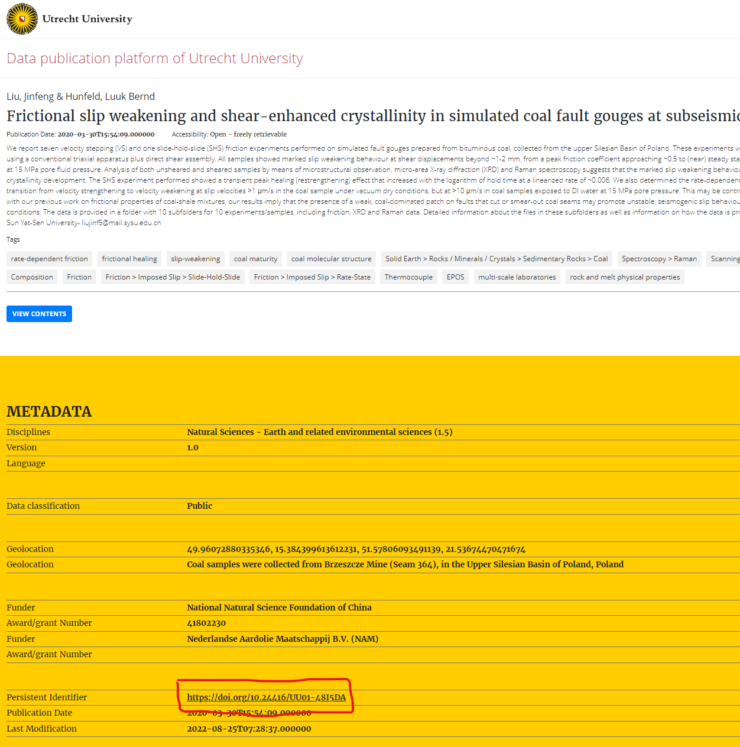
On Zenodo it is in the right column under publication date.
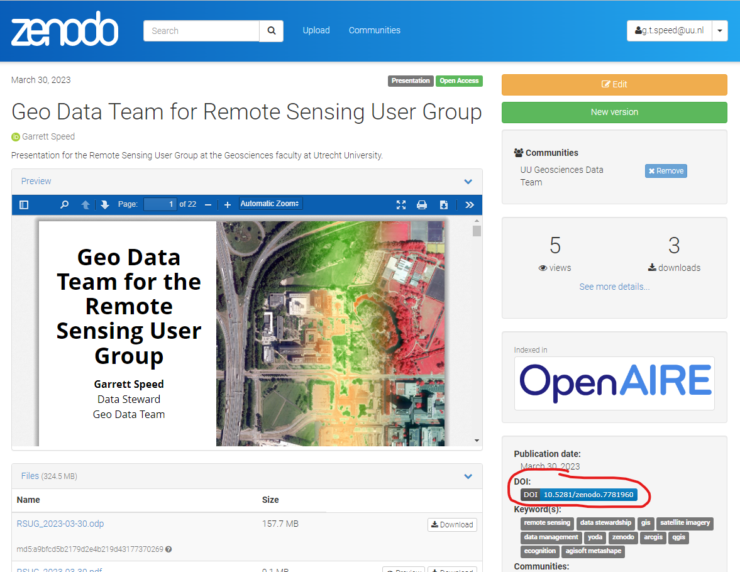
ORCiD
ORCID (Open Researcher and Contributor ID) is a persistent identifier system designed to uniquely identify researchers and contributors and to connect their research activities across disciplines, institutions, name changes, and geographic borders.
ORCID can be used on many platforms such as Springer-Nature, Taylor and Francis, El Sevier, YoDa, Zenodo, MDPI, and many more. It can also be used as a CV for your research output and career.
You can generate an ORCiD for yourself on their website: ORCID

